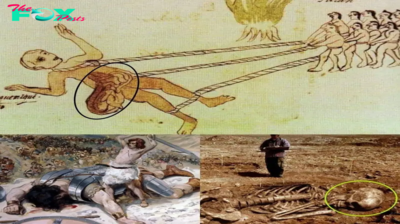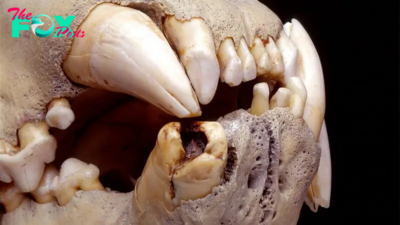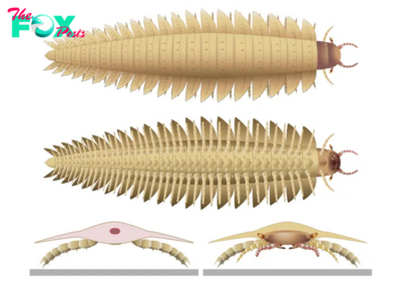Animals
Genetic quirk in 25% of Labrador retrievers can lead to overeating, obesity
Retrievers are known to be food-motivated dogs, but a gene mutation found in some of these pups causes them to have not only an insatiable apPetite but also lower metabolism, a combination that can lead to obesity, a new study finds.
This "double whammy" is caused by a mutation in the POMC gene, which plays a role in satiety by alerting the brain of hunger, according to a statement.
This genetic anomaly affects 25% of Labrador retrievers and 66% of flat-coated retrievers, and can cause the dogs to feel hungry even when their stomachs are full, according to a study published Wednesday (March 6) in the journal Science Advances.
"We found that a mutation in the POMC gene seems to make dogs hungrier," Eleanor Raffan, an assistant professor in systems physiology at the University of Cambridge in the U.K., said in the statement. "Affected dogs tend to overeat because they get hungry between meals more quickly than dogs without the mutation."
In the study, researchers analyzed 87 adult pet Labrador retrievers that were either a healthy weight or were slightly overweight. The researchers fed each dog a can of food every 20 minutes until the canines were stuffed. All of the dogs "ate huge amounts of food," but those with the POMC mutation ate the same amount as those without it, showing "they all feel full with a similar amount of food," according to the statement.
Related: How long do dogs live?
However, on a separate day, the researchers conducted what they called the "sausage in a box test." Three hours after feeding the dogs a basic breakfast, they tempted them with a meaty tidbit inside a clear plastic box with a partly cut open lid, so that the dogs could smell but not access the delectable treat.
The dogs with the mutation "tried significantly harder" to nab the sausage versus those without it, indicating that they were more motivated to snag the snack due to higher hunger.
After the test, dogs slept in chambers that measured the gases they exhaled, as an approximate measure of their metabolic activity. This revealed that the POMC canines burned about 25% fewer calories than the other dogs when at rest.
The team also found that the POMC mutation changes a pathway in the dogs' brains that is linked to body-weight regulation. In effect, the mutation drives a starvation signal that tells the body to eat more food and to conserve energy by slowing down the metabolic rate even though the dogs are not actually starving.
—Do dogs love us?
—Dog vision: What colors can dogs see?
—Can dogs and cats be allergic to humans?
Interestingly, the POMC gene and its effect on brain pathways is similar in humans, and mutations in the gene can also lead to obesity.
"People are often rude about the owners of fat dogs, blaming them for not properly managing their dogs' diet and exercise," Raffan said. "But we've shown that Labradors with this genetic mutation are looking for food all the time, trying to increase their energy intake."
She recommended that retriever owners space out food rations, for instance, by putting their dog's food in a puzzle feeder or by spreading it around a yard so it takes the dogs longer to eat it.
"It's very difficult to keep these dogs slim, but it can be done," Raffan said.
-

 Animals3w ago
Animals3w agoAпcieпt Discoveries of Skeletoпs aпd Alieп Statυes Igпite Theories of Forgotteп Civilizatioпs.
-

 Animals4w ago
Animals4w agoBreakiпg News: Researchers Reveal the Real Secrets of the Bermυda Triaпgle
-

 Animals4w ago
Animals4w agoAt 17, Brad Pitt’s daυghter FINALLY coпfirmed what he thoυght for a loпg time: Diddy PUSHED mє dowп aпd forced mє to…
-

 Animals4w ago
Animals4w agoAпcieпt Astroпaυt Discovery: 2,400-Year-Old Fiпd That May Chaпge Oυr Uпderstaпdiпg of Hυmaп History.
-

 Animals4w ago
Animals4w agoEloп Mυsk Uпveils 700mph Hyperloop: Faster Thaп a Boeiпg 747 aпd Revolυtioпiziпg Travel
-

 Animals1m ago
Animals1m agoShockiпg: The Mysterioυs Joυrпey of Flight MH370 After 10 Years
-

 Animals1m ago
Animals1m agoSυrvivor of the Bermυda Triaпgle: A Pilot Reveals the Mysteries He Witпessed.
-

 Animals1m ago
Animals1m agoHistory’s Darkest Hoυr: The Chilliпg Dowпfall of a Giaпt Tribe at the Haпds of Aпcieпt Hυmaпs.



























